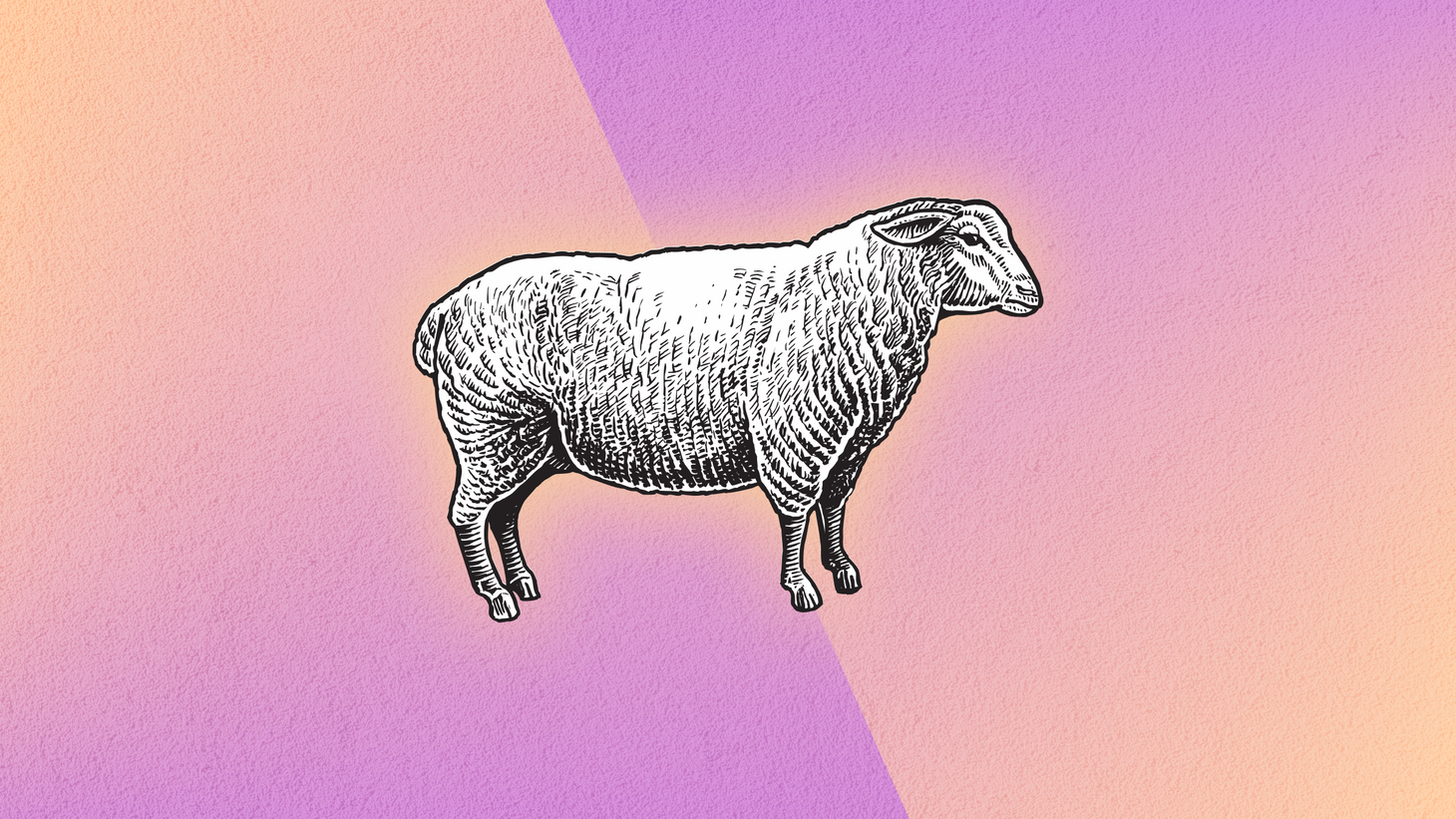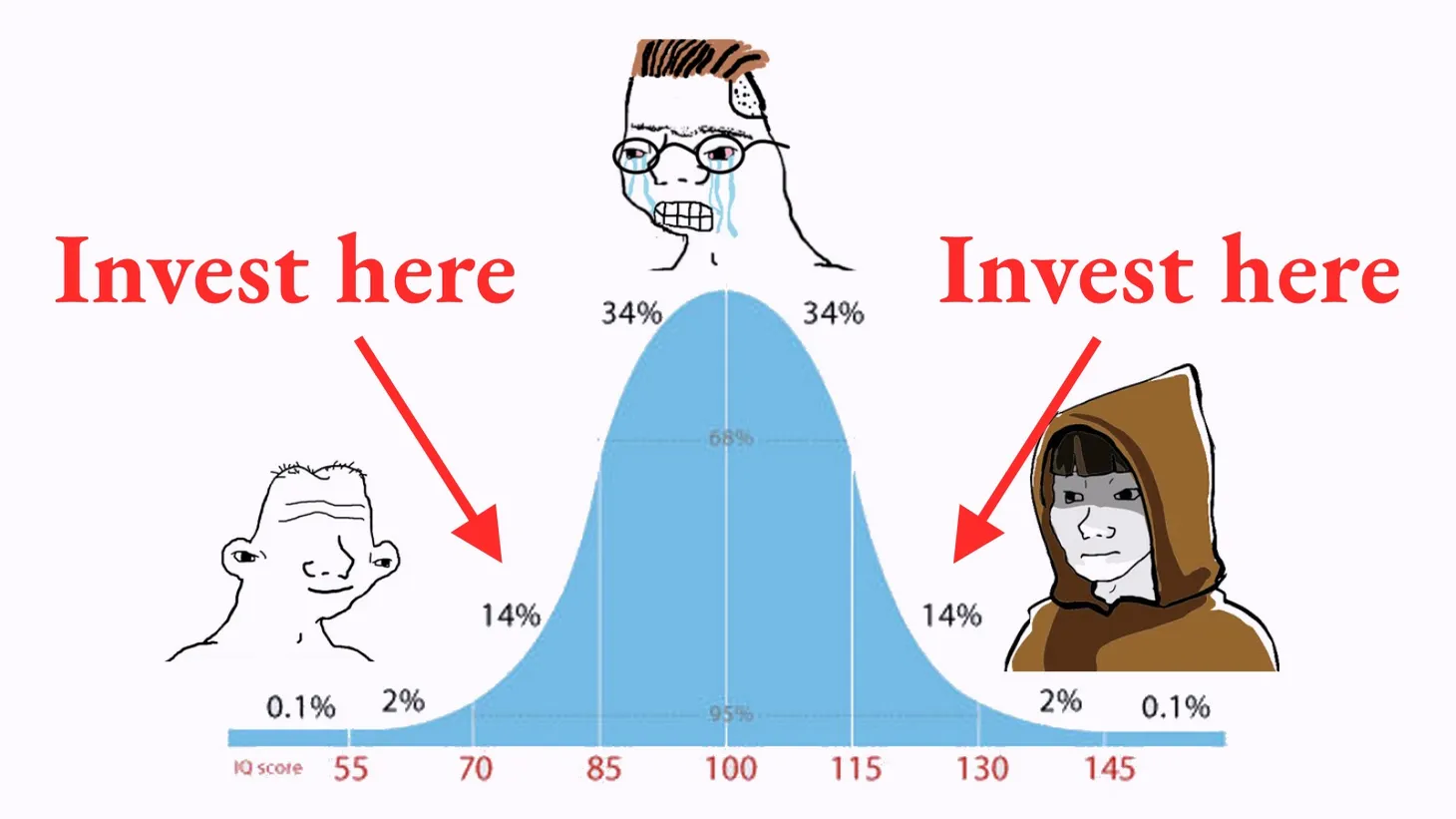Abrogation Theory
In a world with unlimited information, thinking for yourself is irrational.

🔥 The 4th cohort of Hype-Free Crypto just started. People are already signing up for our May cohort. Looking for an impartial introduction to the technologies and business models that will define the next decade? Join us
🚀 Looking for a Corporate Crypto Course? Give your team a hands-on introduction to Blockchains, Decentralized Finance, and Web3 with our private corporate cohorts. Learn more here.
In a world with unlimited information, thinking for yourself is irrational.
Ben Thompson wrote an excellent piece about The Current Thing. For those not familiar, "the current thing" is a meme that mocks social media users' eagerness to show their support to... the current thing. The "thing" is usually a political cause or group that happens to be in the news. And social media users "support" it by adding a symbol to their profile photo — an anti-Covid mask, a Ukrainian flag, a MAGA hat, a Black Lives Matter logo, etc.
The following tweet from Elon Musk is an example of the meme that mocks this dynamic:
— Elon Musk (@elonmusk) March 14, 2022
Musk is not anti-Ukraine — he famously provided the Ukrainian military and people with satellite internet access that enables their drones to kick Russia's butt. Doing so, Musk put his own company and personal safety at risk.
The meme is not criticizing support for Ukraine. Instead, it mocks the eagerness of individual people to pick a side and signal their belonging. And more importantly, it highlights the fact that once people belong, they automatically oppose or shut down any idea that seems to threaten their side. Once they pick a side, people are abrogating their responsibility to think for themselves or, at times, to think at all.
Let's take my own bundle of Covid views as an example. I am triple-vaccinated and was very excited once the vaccines finally came out. At the same time, I would like to read every possible study that highlights risks and side-effects associated with these specific vaccines, and I take any pronouncement by drug company executives with a grain of salt. I also thought we should have restricted travel in early 2020 and required people to wear masks indoors months before we actually did. At the same time, I believe masks and lockdowns carry a huge emotional and developmental toll on grown-ups and children, respectively. I think the government should play a massive role in maintaining public health and in providing healthcare services. At the same time, I believe the CDC and World Health Organization have made terrible mistakes and are embroiled in conflicts of interest that need to be discussed openly.
Online (and offline), it is increasingly difficult to discuss these types of views, even though there is nothing controversial about them in themselves. The difficulty stems from the fact that some of these views belong on one side and some on the other. So, you can speak about some of them with some people, and about others with other people. But mentioning ideas from "Side A" to people from "Side B" will cause those people to automatically assume that you also believe in everything else people from "Side A" believe in. For example, a person who questions whether there is any scientific justification for toddlers wearing masks in outdoor playgrounds somehow means this person must also be an anti-vaxxer, climate-denier, or election-denier.
This type of positional warfare — the belief that people who aren't staunchly on my side must be my enemies — is harmful in various ways. It pits people against each other, and it makes it seem like people disagree on more than they actually do. In reality, I suspect that most people's views on specific issues are much closer to each other's, but the necessity to bundle these ideas and choose sides highlights the differences.
And it also does something much worse. By supporting a bundle of ideas rather than thinking independently about each one, we also risk supporting things that we would otherwise disagree with entirely.
So why do we do it? Why do we pick sides instead of trying to process all relevant information on our own?
Because it makes sense. There is too much information for us to process, so the most rational way to function is to pick a side and go with the flow. Of course, the human tendency to join groups and run with the crowd is not new. But the internet makes this type of alignment more necessary than ever.
Ben Thompson uses his business-focused Aggregation Theory to explain why. That theory explains the paradox at the heart of the internet: it enables anyone to become an independent publisher and it gave rise to the largest and most powerful media companies. The abundant and decentralized nature of the internet requires us to depend on more centralized entities in order to make sense of that information:
"when all constraints on content are removed, more power than ever accrues to the entity that is the preferred choice for navigating that content; moreover, that power compounds on itself in a virtuous feedback loop."
This explains the rise of Google (to help us sift through billions of pages), Facebook (to help us keep in touch with hundreds of friends), Airbnb (to help us choose between millions of accommodation options), etc. And, as Thompson points out, it can also explain our desire to support "the current thing" and, once we do, to accept whatever bundle of ideas comes with it:
"Being informed about everything happening in the world is hard if not impossible: humans evolved to care intensely about what happened in their local environment; however, first mass media, and then the Internet, brought news from everywhere to our immediate attention.
Given that, it seems entirely reasonable — expected even — that we all outsource our intuition for what events matter, and what our position on those events should be, to the most convenient option, especially if that option has obvious moral valence."
This is not just a matter of convenience. It is also a matter of rational risk avoidance. The nature of the internet tends to intensify the effects of early success: Once a few people like a Tweet, the tweet gets amplified by algorithms that recommend it to more people, who share it with more people, which drives the algorithm to show it to even more people. Once this dynamic hits a critical point, it becomes self-reinforcing and unstoppable. And so, two tweets might initially have an almost identical level of popularity, but a slight initial advantage can result in a massive gap in their ultimate popularity.
Once this self-reinforcing and unstoppable machine gets going, you don't want to stand in its way. And so, the internet enables us to think for ourselves, but it also creates conditions that incentivize us not to. Thompson likens this outcome to the one we see in the business world: The internet enables anyone to sell their books directly (using tools like Stripe and Shopify), but it also makes it very risky and costly to not sell your books on Amazon:
"the Internet makes possible a wide range of viewpoints... but the Internet, thanks to its lack of friction and instant feedback loops, also makes nearly every position but the dominant one untenable. If everyone believes one thing, the costs of believing something else increase dramatically, making the consensus opinion the only viable option; this is the same dynamic in which publishers become dependent on Google or Facebook, or retailers on Amazon, just because that is where money can be made."
And indeed, many people do set up their own sites to sell wares or publish content, but most people don't. In the same way, some people use the internet to develop independent and nuanced opinions. But most people don't. How can we make it easier for more people to do so?
I'll think about it. But I suspect Aggregation Theory offers only part of the explanation for this dynamic. The way memes interact with one another and form bundles of related ideas (memeplexes) also plays an important role—more on that, next time.
Have a wonderful weekend. If you enjoyed this email, please forward it to a friend (and subscribe), and check out my Hype-Free Crytpo course.
Dror Poleg Newsletter
Join the newsletter to receive the latest updates in your inbox.




